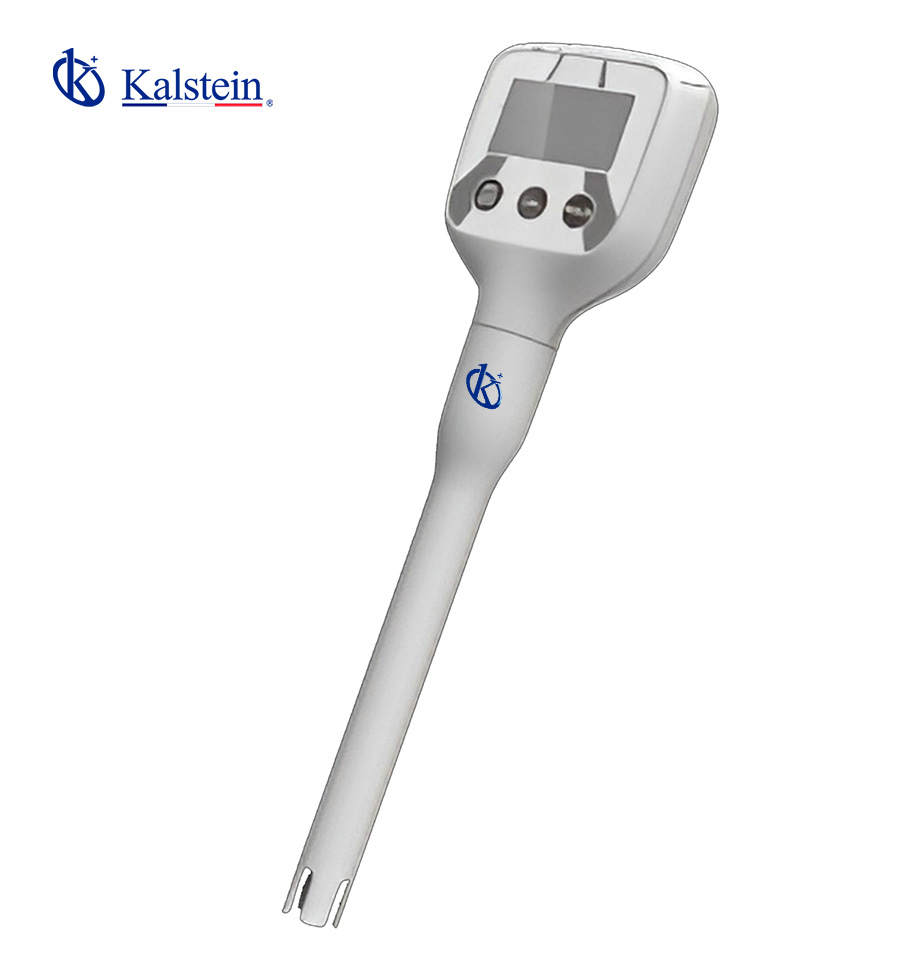In the world of chemical analysis and laboratory settings, having reliable and accurate measurement tools is crucial. Two significant players in the conductivity meter market are the YR01805 Pocket °C / °F Conductivity Meter from Kalstein and the TDS & EC Meter by Apera Instruments. These devices are engineered to provide precise measurements, making them indispensable in modern labs.
The YR01805 by Kalstein is a compact, highly accurate conductivity meter designed for portability and ease of use. It boasts features such as automatic temperature compensation, a wide measurement range, and an easy-to-read LCD. Meanwhile, Apera Instruments’ TDS & EC Meter is also a portable solution, featuring an auto-ranging function and quick calibration capability. Both products are valuable assets, yet as we delve into their details, the subtle distinctions in their design and functionality will illuminate the competitive edge of Kalstein’s offering.
| Feature | YR01805 Pocket °C / °F Conductivity Meter | TDS & EC Meter by Apera Instruments |
|---|---|---|
| Automatic Temperature Compensation | Yes | Yes |
| Measurement Range | 0 – 60.0 mS/cm | 0 – 20.0 mS/cm |
| Display | LCD | LCD |
| Calibration | One point | Three points |
| Battery Life | Approx. 200 hours | Approx. 150 hours |
| Portability | High (pocket-sized) | Medium (hand-held) |
How They Work
The YR01805 Conductivity Meter from Kalstein operates by measuring the ion content in a solution. The automatic temperature compensation feature ensures accurate readings regardless of the solution’s temperature. Its pocket-sized design makes it ideal for on-the-go testing in various environments.
The Apera Instruments TDS & EC Meter also measures the ionic concentration in a liquid, providing total dissolved solids (TDS) and electrical conductivity (EC) readings. This device is calibrated using a three-point method for optimal precision, although it requires more steps than Kalstein’s simpler one-point calibration.
What It’s For
The Kalstein YR01805 is designed to be versatile, serving numerous applications including water quality testing, hydroponics, aquaculture, and laboratory analysis. Its accurate readings help scientists and technicians make informed decisions quickly. The device’s portability allows it to be used in various field locations without hassle.
Types
There are numerous types of conductivity meters available on the market. Pocket meters, like the Kalstein YR01805, are designed for users who need portable solutions. Bench meters, in contrast, are suited for laboratory settings where mobility is less of a concern. Hand-held devices, such as the one by Apera Instruments, offer a middle ground, being slightly more robust and ergonomic but less portable than pocket versions.
Market Price
In general, pocket-sized conductivity meters like the Kalstein YR01805 tend to range between $100 to $150, depending on features such as measurement range and additional functionalities. The Apera Instruments TDS & EC Meter is priced similarly, but given Kalstein’s superior measurement range and longer battery life, it often presents as the more cost-effective choice for advanced users.
Frequently Asked Questions
What is the primary use of a conductivity meter?
Conductivity meters are primarily used to determine the ionic content in a solution, which is key in evaluating water purity and quality across various applications.
Can these devices be used in extreme conditions?
While both devices are robust, it’s advisable to operate them within the temperatures specified in their user manuals to ensure accuracy and longevity.
How often should I calibrate my meter?
Regular calibration is recommended for optimal performance. The frequency depends on the usage level and the precision required for your specific applications.
Advantages and Disadvantages
YR01805 Pocket °C / °F Conductivity Meter by Kalstein: The compact design of this device enables easy transportation and operation in diverse environments. Its broad measurement range and extended battery life are significant advantages, although it only offers a one-point calibration. Nonetheless, for typical applications, this simplicity can be seen as an asset rather than a limitation.
TDS & EC Meter by Apera Instruments: This meter offers detailed calibration options, potentially resulting in higher accuracy. However, it has a narrower measurement range and slightly shorter battery life, which may require more frequent maintenance and limit its application scope compared to the Kalstein meter.
Field Use
In practical scenarios, the Kalstein YR01805 meter’s portability proves advantageous for field researchers and technicians who require reliable equipment that can be easily carried around. Its efficient design and robust performance make it a preferred choice for professionals needing accurate and quick diagnostics in various settings.
Recommendations
To maximize the longevity and performance of your conductivity meter, it’s essential to store it in a dry place and perform regular calibrations as specified by the manufacturer. Learning to use the device’s calibration and measurement functionalities thoroughly can significantly enhance its usefulness and reliability in delivering precise data.
If you’re seeking a combination of innovation and quality, you’ve come to the right place. At Kalstein, we offer you the luxury of exploring our exclusive catalog of laboratory equipment. We manufacture each piece with excellence. Our intuitive and agile online shopping channels are designed for your convenience, ensuring the friendliest prices. Don’t hesitate any longer; we bring science to life, and it’s time for you to be part of our community. Explore the YR01805 Conductivity Meter.

